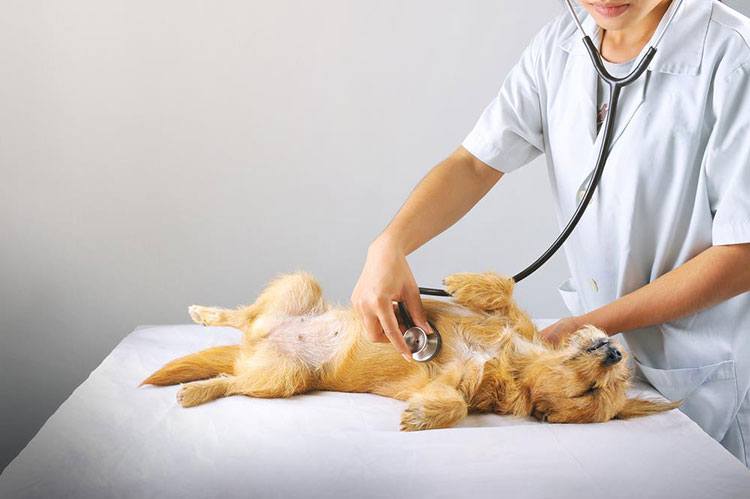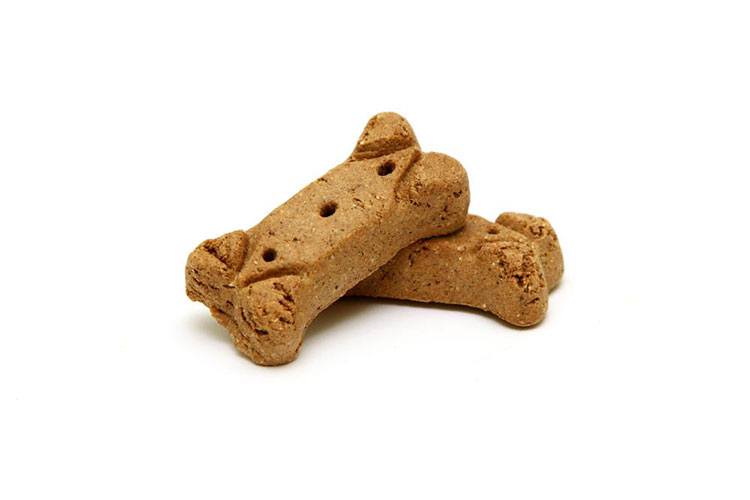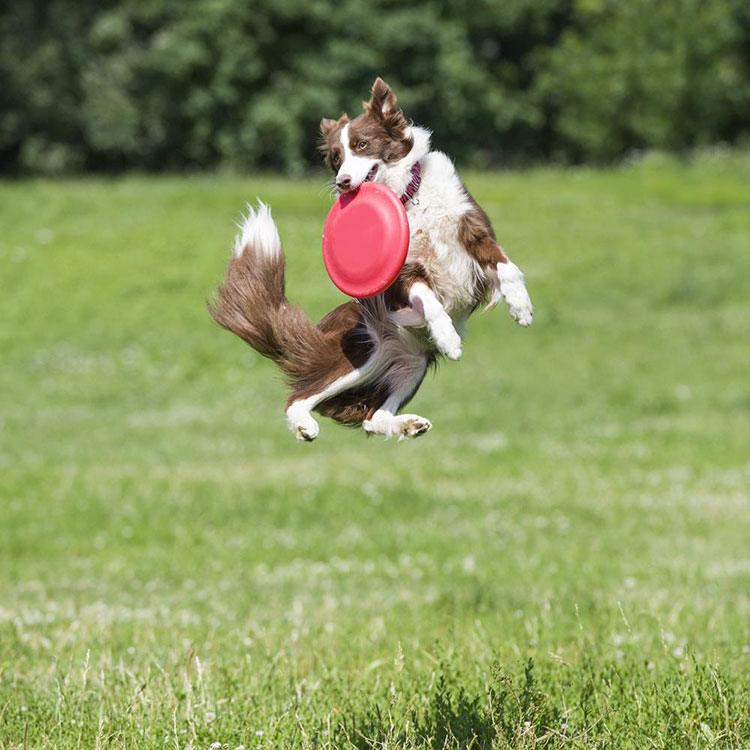Getting a dog for your or your family can be one of the most amazing experiences of your life. Dogs have been with us humans for nearly ten thousand years, and we have developed a very special bond with these creatures. You will find in dogs a loyal companion, a loving friend, a guardian and a curious animal that will sometimes test your patience and fill you with adoration.
So it is only right that we look after these creatures to the best of our ability while we have them with us because they rely on us for so many aspects of their health and wellbeing. If you are thinking of getting a dog for you and your family, here are some helpful tips for ensuring that your dog has the best life possible.
Bond and Train

(stock)
The most important part of keeping your dog healthy and giving it a good life is to train and bond with your dog. Bonding comes in many forms, from playing, to feeding, even allowing your dog to lick your feet! The relationships between owner and pet are one of the key elements to raising a well-behaved and loyal companion. The worst thing is when dogs don’t bond well with their owners, and they then make mistakes, such biting other dogs or people.
Training is all about reward and building trust. From an early age, you should spend a lot of time with your puppy, keeping it under the supervision and ensure that the dog becomes comfortable with the outdoor environment. A well-trained dog will be a healthy one because much of the bonding occurs during exercise and in a variety of environments.
Don’t Forget the Annual Physical

(stock)
Dogs live on an accelerated life schedule. It is one of the saddest truths you will have to come to terms with – that dogs don’t hang around nearly half as long as we do. Therefore, respect your dog’s inner body clock and make sure you visit a vet once a year. Because dog’s age so fast, illnesses and certain medical conditions can advance in a very short time frame, sometimes only in a year.
As with all serious conditions, early detection and prevention are better than trying to find a cure. As you probably do with your health, try to find a vet in the local area with whom who and your pet can form a relationship with. Ideally, bring your dog when it’s a puppy, so the vet will be able to know your dog throughout its life.
A physical should be as comprehensive as possible, including a dental test, blood count, vaccinations updates, a blood-chemistry check. Make a dialogue with your vet so you can always talk through any concerns you have as your dog matures.
Be Wary of Pests

(stock)
Your dog will come into contact with a lot of different environments that us humans don’t usually go near. They will run around in the bushes, under trees, into any space they can get into.
They will be exposed to all manners of different creatures that sometimes become pests if they manage to latch onto your dog. Some of these pests can carry diseases or affect other complications, such as ticks, or infest you and your homes, such as fleas.
It’s not fair to keep your dog away from nature, so the best thing to do is to treat your dogs against the pests found on the outside. Some of these pests include heartworm, fleas, lice, ticks. Treat your dog regularly against these pests and don’t forget to consult a vet if you are unsure.
Let your Dog Eat Well
Dog food can be an expensive additional item for family groceries, but it is really important that your dog gets as many nutrients and a balanced diet as we do. So you need a pure balance dog food to ensure the health of your dog.
Even though dog’s digestive systems are different to ours in many ways, their mammalian ancestry means that they also crave and need much of the same foods as we do. There are plenty of high-nutrient dog foods on the mass market; many contain meat and carbs for your dog. Mass-market dog foods can be turned into higher nutritious foods by serving chicken and other meats, try adding fibrous foods and vegetables to ensure your dog gets the nutrition it deserves.
Observe your Dog
Dogs will not communicate health problems to you as people will. Even babies are more communicative than adults dogs, but dogs do communicate in other ways, and if you learn to observe your dog’s physical language you will learn a lot about your dog.
An important thing to remember is that dogs if they are developing a health condition, will not show symptoms. It’s important to always observe your dog’s breathing, posture, ears, and tails.
A depressed dog will often show signs of a limp tail and soft ears for example, and conditions of the gut and bad teeth will create bad breath. Either you can observe your dog until you know your pet inside out and sense if anything is wrong at any time, or you can also create a notebook where you regularly check your dog and put down your thoughts.
Keep Treats Special!

(stock)
Dogs love food, this we know for certain. Some puppies will keep eating until they are sick and regurgitate it back up, and older dogs will still probably do the same.
One sure way to make your dog happy is to feed it treats, but you should be quite careful with this approach. They will gain weight just like we do and they will feel the effects. Limit the food in your dog’s diet, such a treats, to keep them special. Ideally, you’ll want to feed him no more than 10% of his diet in the forms of treats or snacks.
The best way to do this and help your dog’s digestion is to make treats small, so they are easily digestible and do not cause stomach or bowel problems down the road.
Keep your Dog Exercising

(stock)
Puppies will start off in life with a lot of energy which can be exhausting for new owners, but it is important that you start a disciplined exercise early on in life.
These can take the form of walks and runs, but ensure your dog is healthy before starting running. Dogs enjoy exercise immensely, and it is the perfect method to create deep bonds with your dog at a young age. Traditional wisdom dictates that 1.5 years is the perfect time to start running with larger breeds of dog, but you should do it daily when his vaccines allow being outside.
Conclusion
A dog is a lifetime companion that will add much joy and contentment to you and your family’s life – in return, the least you can do is ensure that your canine friend is given the best health they can have. With our list above, we’ve hopefully given you a starting point for looking after your dog’s health.
About The Author:
 Emma is the founder of HelloCutePup.com. As the owner of 3 dogs, Emma has had the pleasure of learning the ins and outs of becoming a pet owner. With years of experience working in training, at-home dog health care, and aesthetic maintenance, she has the real-world experience that every pet owner is looking for. She is an avid blogger who enjoys giving realistic tips and tricks to help dog owners understand their pet’s personalities and to help pets easily become a part of the family.
Emma is the founder of HelloCutePup.com. As the owner of 3 dogs, Emma has had the pleasure of learning the ins and outs of becoming a pet owner. With years of experience working in training, at-home dog health care, and aesthetic maintenance, she has the real-world experience that every pet owner is looking for. She is an avid blogger who enjoys giving realistic tips and tricks to help dog owners understand their pet’s personalities and to help pets easily become a part of the family.




